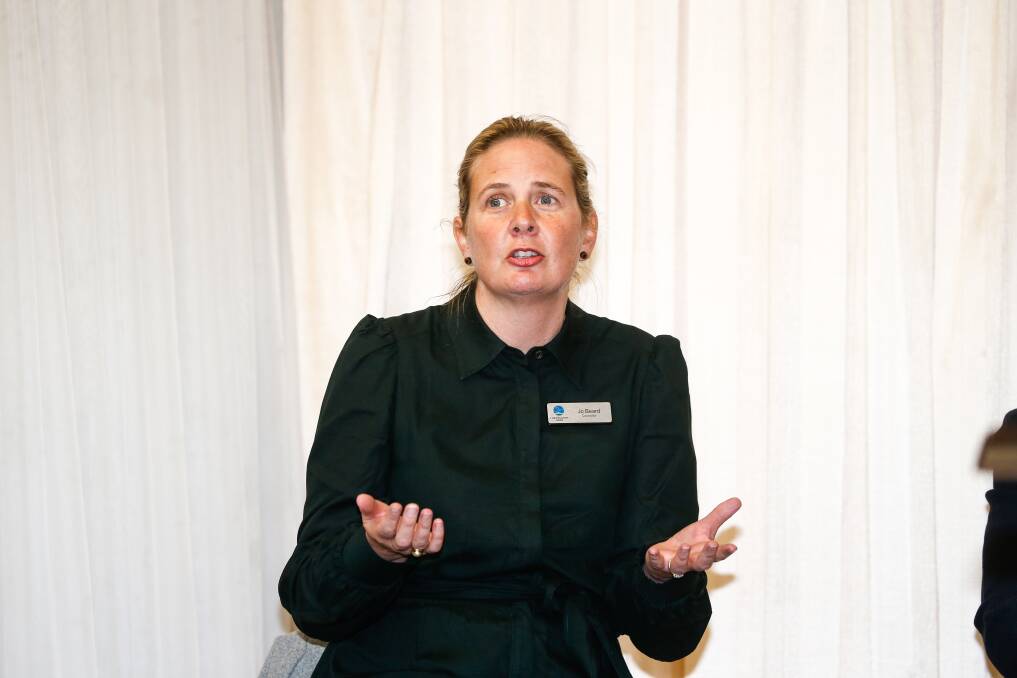
Roadworks will be scaled-back because of soaring bitumen costs prompting councillors to flag concerns about financial pressures of rate capping on rural shires.
Subscribe now for unlimited access.
$0/
(min cost $0)
or signup to continue reading
Instead of carrying out resealing works on 75 kilometres of Corangamite Shire roads, councillors voted unanimously on Tuesday to only do 60 kilometres prompting a self-described "rant" from one who warned that the impact of inflation on rural councils subject to rate-capping was "not sustainable".
The joint contract to reseal roads in both Corangamite and Warrnambool City municipalities will cost almost $3 million, and Warrnambool's portion of the contract came in on budget, the shire's did not.
Corangamite had budgeted about $2 million but costs have blown out by about $482,000 after the price of bitumen jumping 32 per in a year.
What are the issues most important to you at November's state election? Let us know at the bottom of the article
Cr Jo Beard said cutting back the works would jeopardise the council's asset plan, and with cost increases it was only going to get tougher.
"I don't usually have a rant, but I think I'm going to have a rant," she said.
"This is where it doesn't sit right with me...we've seen there's been cost blowouts in other projects and this isn't going to come down. It's only going to continue get worse.
"We've got a CPI of nearly 10 per cent. We're operating in a rate-capping environment of 1.75 per cent, throw in inflation costs. We're always going to be going up hill with this."
Mayor Ruth Gstrein said the fact the rate cap was set on CPI as "a basket of groceries", "not a tonne of bitumen" which impacted rural councils with large road networks.
Cr Beard said the number one expectation of ratepayers was roads and, if the council had to jeopardise how they managed the local roads, it was something that "could undo us in years to come".
"I'm not happy that there is going to be a detriment in terms of the sealing of the roads that get done," Cr Beard said.
"We don't really have a choice at the moment.
"It's not sustainable to particularly rural councils like ours."
Cr Beard supported the recommendation to scale-back the works because it was still "a good deal" but said the council had to mindful of the implications going forwards.
Cr Jamie Vogels said it was "not ideal" but was what they had to do.
"We'll get further and further behind with our asset renewals but we're better to stick within budget and push it out rather than blow the budget," he said.
He said they needed "a lot more funding" from state and federal governments.
The council's director of works and services Brooke Love said scaling back the works meant roads would be resurfaced closer to the end of their useful life of 15 years rather than 12 years.
"We do not believe that will have a detrimental impact on the overall road network condition," Ms Love said.
She said council-owned roads were in a stable condition, and a recent assessment found 99 per cent were in an acceptable condition.
Ms Love said there was a "significant" difference between the highest and lowest tender - from just under $3 million to as high as $3.78 million.
Council will monitor the impact of the reduced works.
What are the issues most important to you at November's state election? Have your say and we will then campaign on the issues you choose. Tell us what matters most to you
Now just one tap with our new app: Digital subscribers now have the convenience of faster news, right at your fingertips with The Standard:
Have you signed up to The Standard's daily newsletter and breaking news emails? You can register below and make sure you are up to date with everything that's happening in the south-west.
If you are doing a COVID-19 story, whack this one at the bottom:


